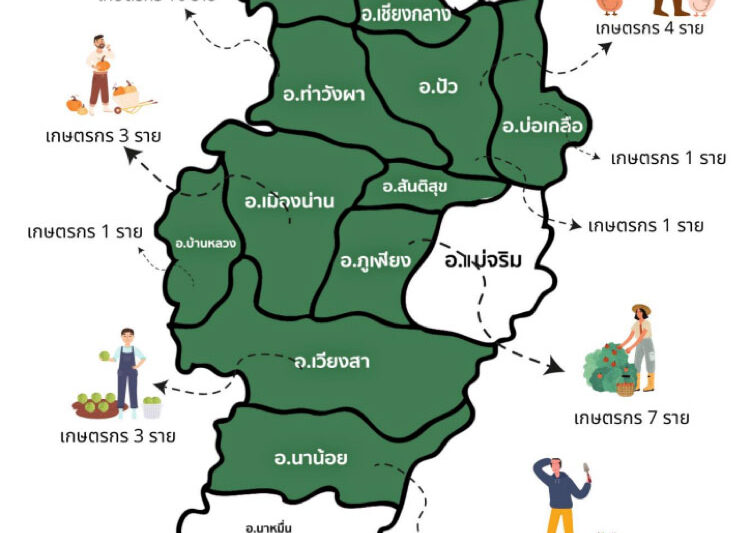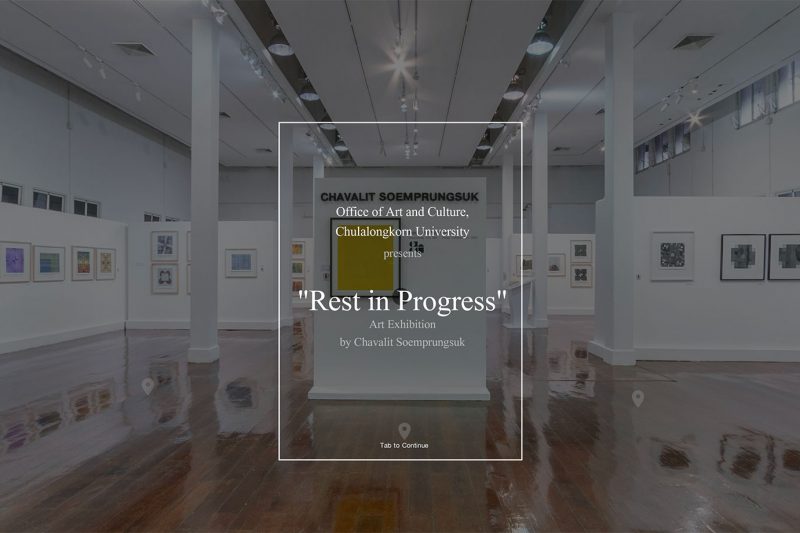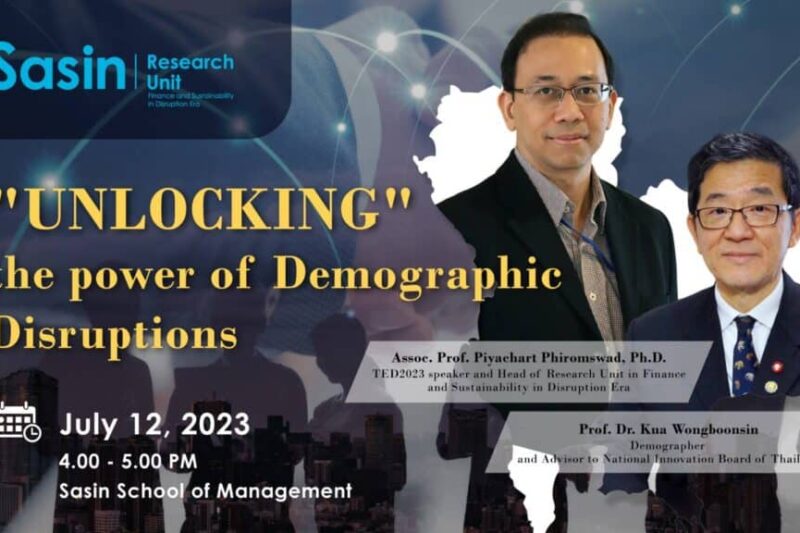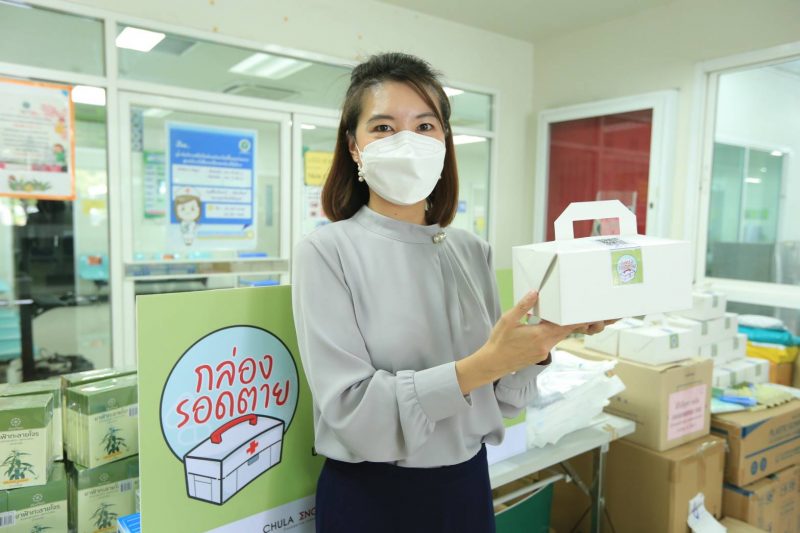CU Innovations for Society, a mission to save Thailand from COVID-19
The world is violently shaken in late 2019 with a new strain of coronavirus that has emerged, aptly named “COVID-19”, which currently still has no known cure or vaccine. This virus has gotten countries around the world, including Thailand, to follow the World Health Organization’s (WHO) guidelines to handle the virus to protect its citizens. The guideline includes shutting down cities, locking down the country, shutting down the airport, state and local quarantine, business curfews, and also social distancing. This can be implemented in a combination of each other and can be adapted to the situation. Thailand has handled the pandemic well enough to be placed first from 184 countries around the world on the Global COVID-19 Index (GCI) in July. Aside from the unity and solidarity from the private and public sectors as well as the citizens, a factor that has made Thailand stand on top in these difficult times is the innovation from the new generation of start-ups that dedicated their knowledge to help Thai people with their best effort.
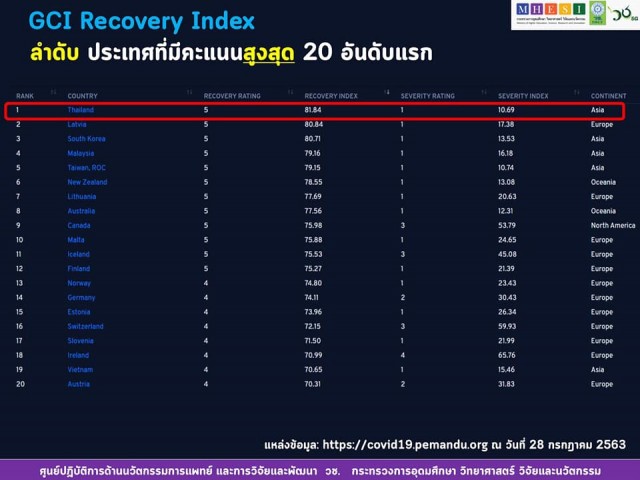
CU Innovation Hub is a melting pot of over 180 start-ups that are ready for elevation into commercial innovation within 3-4 years. It now has a market value of more than 15 thousand million baht and has created over 2000 new entrepreneurs. This is another institute that has a major role in bringing innovation to help with the COVID-19 situation, helping Thais with prevention, protection, and cure with “Chula innovation”
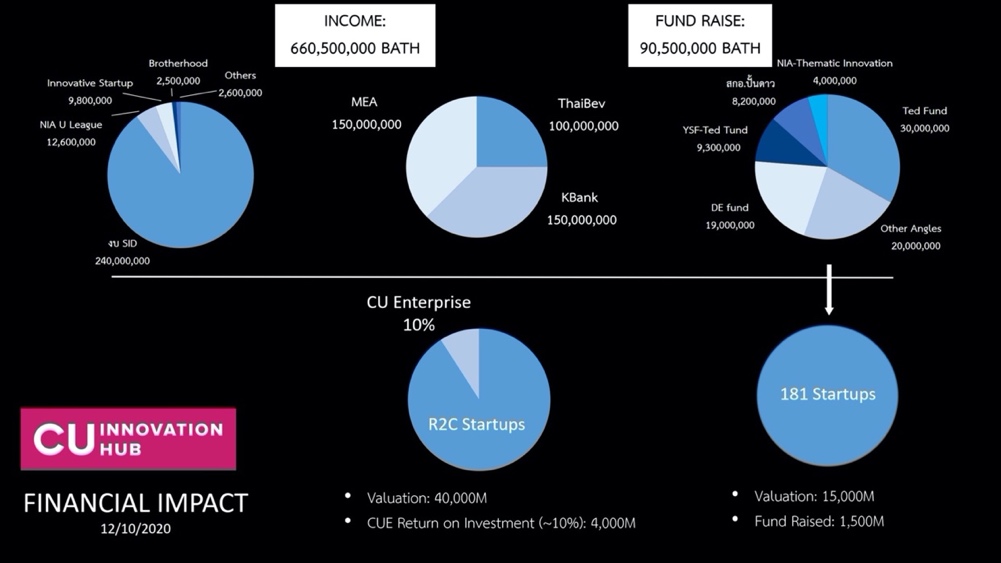
A race to tune start-ups for COVID-19 with New Service Innovation
Chulalongkorn University closely follows and assess the pandemic and, in less than a week, have selected start-ups that are ready to join the cause and adjust their current platform into a service innovation “Chula COVID-19 Strip Test Service: A fast immune system test”. The service will be available at Chulalongkorn Health Center with 6 start-up teams in every step of the process such as Pedthaisupai, Dr.A-Z, RAKSA, QueQ with Baiya COVID-19 Strip Test, the flagship innovation that can do an immune system test that gets results after 10-15 minutes, and innovation from the start-up “Baiya Phytopharm”, which changed the manufacturing platform from Plant-Based Gross Factor into a product that helps handle COVID-19 as soon as they received the cue to join this project. This innovation can be expanded upon into Actual-Use research which will help aid the medical staffs during the COVID-19 pandemic by reducing the density of the patients, tighten the test in the result window, reduce the risk of infection to the medical staff during RT-PCR tests, and boosts the doctors’ confidence to be able to treat more specialized cases such as emergency operations and giving birth.
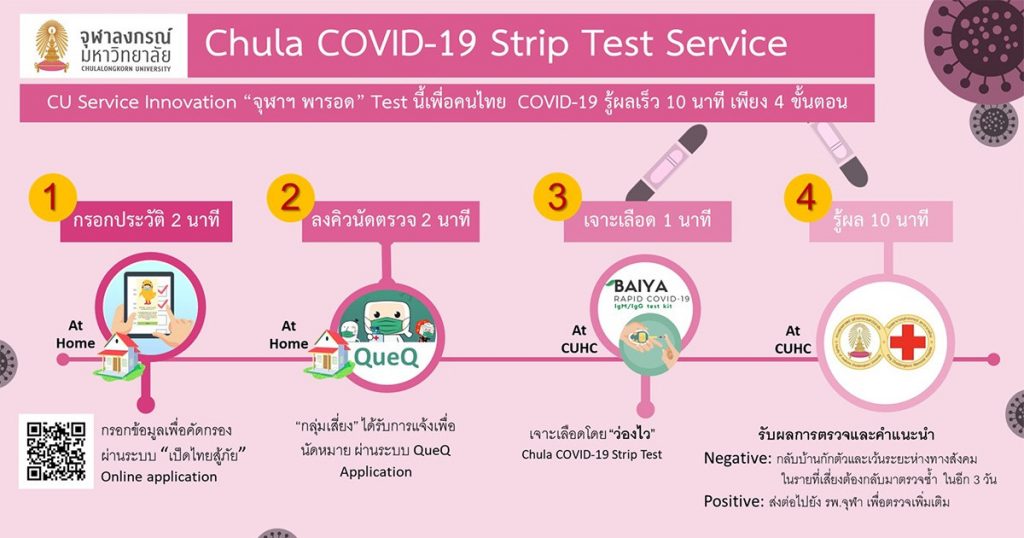
Expand into a Pattani model
Chula COVID-19 Strip Test Service not only help screen patients in the capitol area, but the strip tests from Baiya Phytopharm can be sent to remote areas in the southern borders which has a higher risk under the “Pattani model”. It also helps with managing the local quarantine area to be more effective near the Thailand-Malaysia border with the help of the Primary Health Care Division. The Ministry of Public Health assigns the Primary Health Care Division to take care of the people who came in through Malaysia, looking after their health and mental well-being. Reducing the workload of the local quarantine while assessing the situation to adjust the level of lockdown. The COVID-19 strip test of the locals can also be used to collect data of over 10,000 people to analyze and infer the larger demography, studying trends after infection and the behavior of COVID-19 and their symptoms. Before broadening the research to develop the vaccine, researching how much vaccine is appropriate for each person, which hasn’t been investigated before. This is a success for remote cooperation for over 2 months between Chulalongkorn University and the province of Pattani, which is over a thousand kilometers apart.
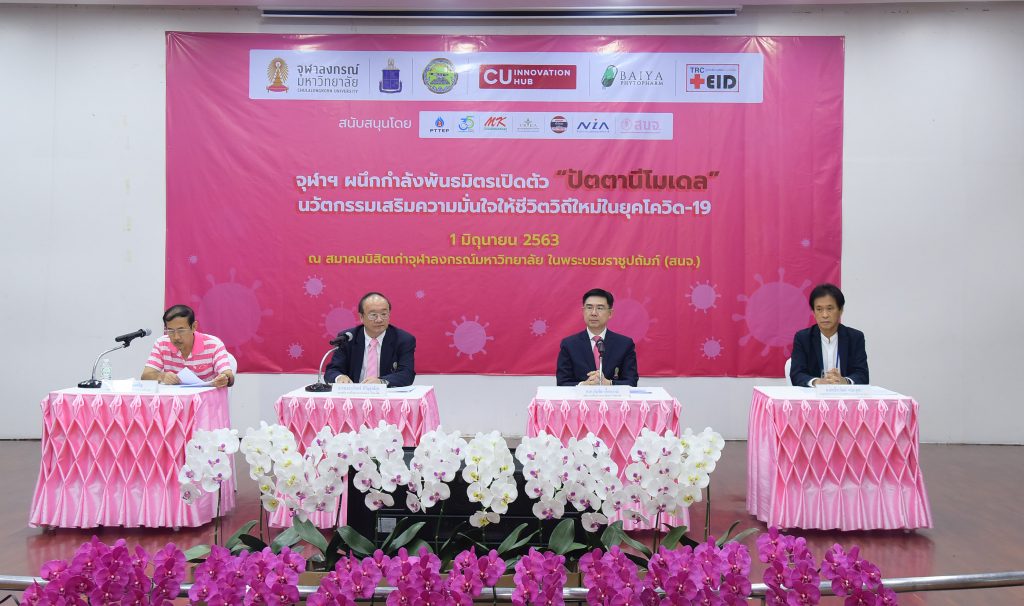
Using robots to save doctors
Chulalongkorn University, with the help of Chulalongkorn University Alumni Association under the King’s Patronage, has sent teams of start-ups in the robotics area from the Faculty of Engineering with “CU RoboCOVID”. Hundreds of “PINTO” and Quarantine Telepresent units have been dispatched to help with social distancing, reducing the medical staff’s risk when working, supplying food, water, and drugs to patients in the remote area quickly, reduce the use of Personal Protective Equipment (PPE), gloves and masks. It has been sent to over 70 hospitals around Thailand with the help of the Chaipattana Foundation.
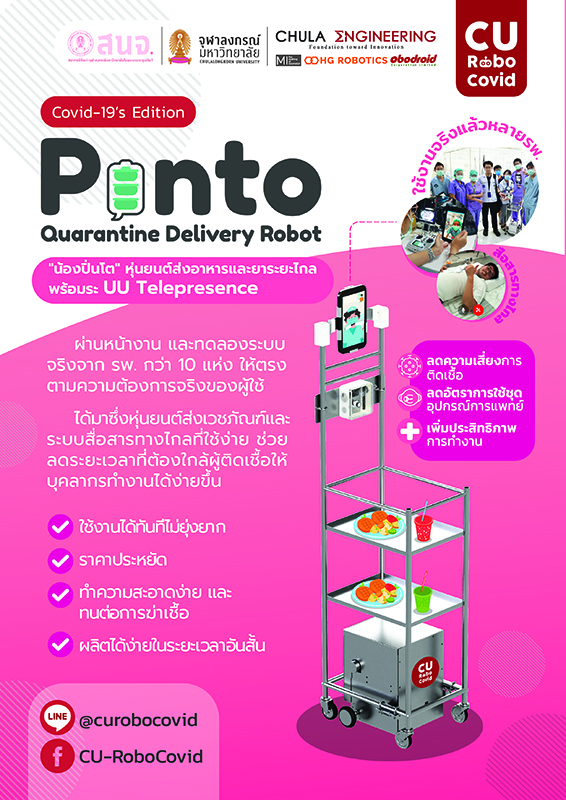
Strengthening cloth masks
COVID-19 has also created an unprecedented environmental issue from the amount of infectious trash like medical masks. The start-up from Chulalongkorn “Absolute” rushed to develop a spray to enhance the effectiveness of cloth masks in place of the medical masks that are in shortage. The spray helps protect from both COVID-19 and PM2.5 at the same time from one spray. This technology is patented with the name Shield+ and has partnered with Tigerplast, a major manufacturer of pharmaceutical products, cosmetics, and medical equipment in Thailand, to help feed the market with options and confidence in a time that people need to rely on masks to protect themselves.
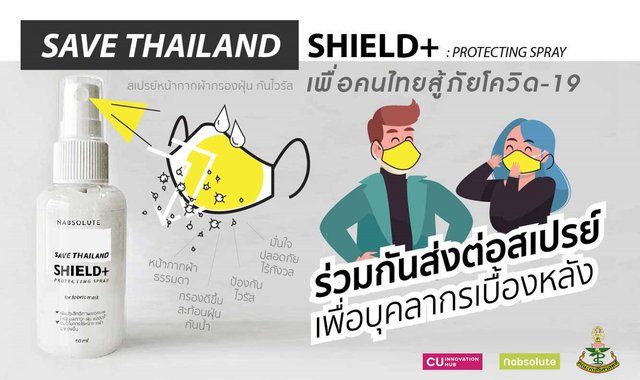
The next step, a vaccine for Thais
From the success of the Baiya Rapid Strip Test from Baiya Phytopharm, there have been developments to make vaccines for COVID-19 from plants with recombinant protein, which is part of the virus that can trigger the immune system response. It has been tested in animals, white mice, and monkeys, with success in the labs and ready to be expanded to human testing. It is ready to move on as soon as the relevant agency approves, with the expectation of having a vaccine being produced in Thailand in mid-2021.
These are only part of the empirical achievement from incubating start-ups into innovation that drives the community, especially in times of need. Reflecting Chulalongkorn University’s vision in this second century “Innovations for society”.
BY CU Innovation Hub, Chulalongkorn University
Faculty of Pharmaceutical Sciences, Chulalongkorn University
Faculty of Engineering, Chulalongkorn University
Faculty of Medicine, Chulalongkorn University
Related articles:
- https://mgronline.com/greeninnovation/detail/9630000106113
- https://mgronline.com/greeninnovation/detail/9630000046354
- https://www.greennetworkthailand.com/จุฬาฯ-ปัตตานีโมเดล-covid-19/
- https://covid.pattani.go.th/news/detail/19/data.html
- https://www.chula.ac.th/news/29609/
- https://www.eng.chula.ac.th/th/26892
- https://www.matichon.co.th/education/news_2127854
- https://www.thaipost.net/main/detail/63224
- https://www.naewna.com/lady/491626
- https://www.hfocus.org/content/2020/08/20036
- https://www.bangkokbiznews.com/news/detail/897517
- https://voicetv.co.th/read/WNNRDXEOF
Others

